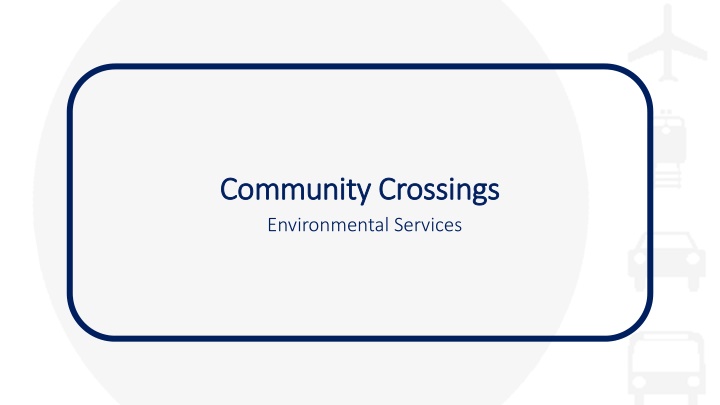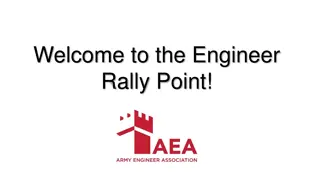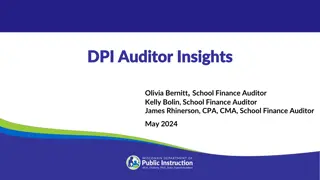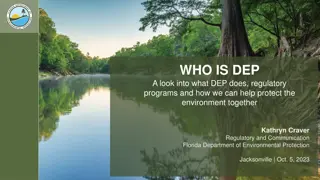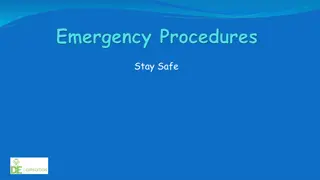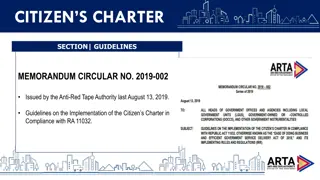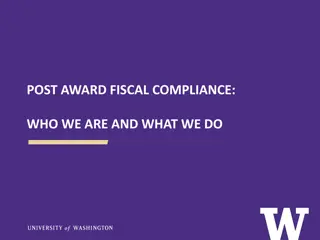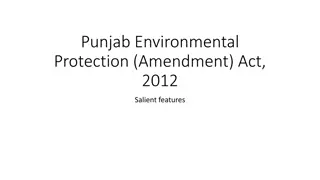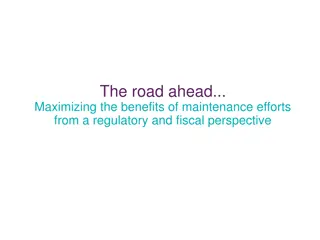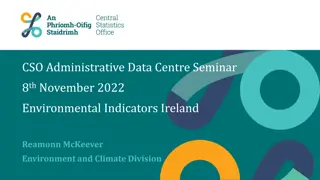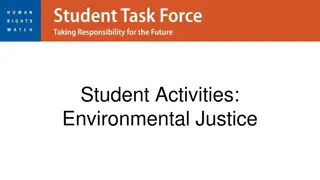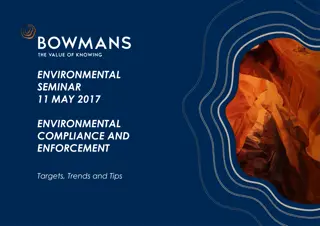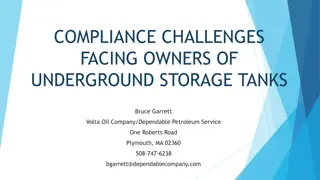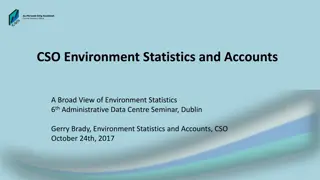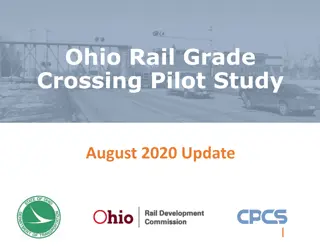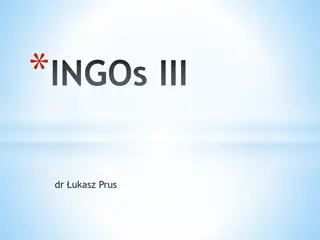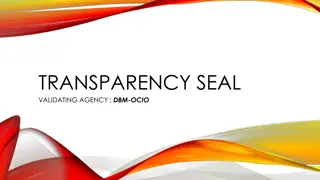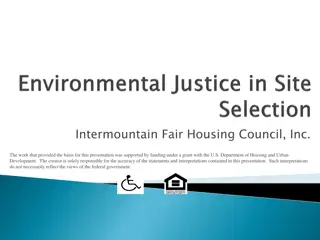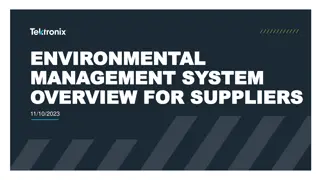Community Crossings Environmental Compliance Guidelines
This document outlines the environmental compliance requirements for Community Crossings projects, detailing the application of State Environmental Policy Act (SEPA), cultural resources preservation laws, and federal permit considerations. It emphasizes the responsibility of the recipient unit of government in adhering to SEPA requirements and collaborating with relevant agencies for compliance. Contact information for guidance on SEPA, cultural resources, and federal permits is provided for project proponents.
Download Presentation

Please find below an Image/Link to download the presentation.
The content on the website is provided AS IS for your information and personal use only. It may not be sold, licensed, or shared on other websites without obtaining consent from the author.If you encounter any issues during the download, it is possible that the publisher has removed the file from their server.
You are allowed to download the files provided on this website for personal or commercial use, subject to the condition that they are used lawfully. All files are the property of their respective owners.
The content on the website is provided AS IS for your information and personal use only. It may not be sold, licensed, or shared on other websites without obtaining consent from the author.
E N D
Presentation Transcript
Community Crossings Community Crossings Environmental Services
Community Crossings Community Crossings - - Environmental Environmental Community Crossings projects are not federal actions. National Environmental Policy Act (NEPA) does not apply. State Environmental Policy Act (SEPA) requirements do apply. The recipient unit of government is the project proponent. The recipient unit of government is responsible for documenting how the project meets the requirements of the State Environmental Policy Act (SEPA).
Community Crossings Community Crossings SEPA Requirements SEPA Requirements Most projects will be or excluded or exempted based on project type. Exclusions list: 327 IAC 11-1-3 http://www.in.gov/legislative/iac/T03270/A00110.PDF Exemptions list: INDOT CE Manual (2013) pg. 10 http://www.in.gov/indot/files/ES_2013CEManual.pdf If the project meets either of these requirements, explain how the project qualifies for the exclusion or exemption in a short memorandum to the project file. This documentation may be required later in project development. Projects that are not exempted or excluded require a SEPA document. Like a NEPA document Contact INDOT Environmental Services to discuss guidelines Contact: Nicole Contact: Nicole Fohey Fohey- -Breting Breting, Environmental Policy Manager, , Environmental Policy Manager, NFoheyBreting@indot.IN.gov NFoheyBreting@indot.IN.gov. .
Community Crossings Community Crossings Cultural Resources Cultural Resources Projects must comply with state historic preservation laws. These are administered through IDNR s Division of Historic Preservation and Archaeology State regulations that are most likely to apply to transportation projects are discussed in the INDOT Cultural Resources Manual http://www.in.gov/indot/crm/files/Chapter_1-Overview.pdf. Projects that go beyond the existing roadway footprint are most likely to require investigation, documentation and additional coordination to demonstrate compliance. INDOT s Cultural Resources Office is available to provide guidance on complying with state historic preservation law. Contact Matt Coon, Cultural Resources Manager, Contact Matt Coon, Cultural Resources Manager, mcoon@indot.IN.gov mcoon@indot.IN.gov. .
Community Crossings Community Crossings Federal Permits Federal Permits Unlike federal-aid projects, a local project s federal permits are a separate federal action by the permitting agency, and federal action by the permitting agency, and that agency is the lead agency for that federal action that federal action. Identify the need for federal permits early. Typically, this will be a Clean Water Act 404 from US Army Corps of Engineers Identify the federal agency s required investigations and documentation early. This will include, at minimum: Section 106 Endangered Species Act Determine whether mitigation is needed and secure it. separate that agency is the lead agency for
Community Crossings Community Crossings State Permits State Permits Like any other project, the proponent is responsible for identify the need for state permits. Identify the need for state permits early IDEM 401 Water Quality Certification IDEM State Isolated Wetlands IDEM Rule 5 Construction Stormwater IDNR Construction in a Floodway Determine whether mitigation is needed and secure it. Contact: Sandy Bowman, Ecology & Waterway Permitting Manager, Contact: Sandy Bowman, Ecology & Waterway Permitting Manager, SBowman@indot.IN.gov SBowman@indot.IN.gov. .
